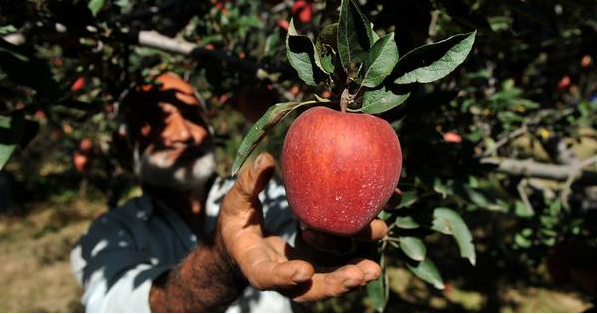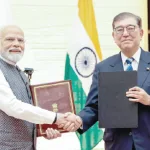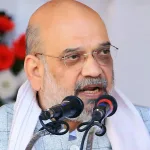Apple growers across states from Jammu Kashmir, to Himachal Pradesh and Uttarakhand must join hands, involve their governments and hire domain experts to prepare a viable road map
GL RAINA
Apple growers in India, including Jammu Kashmir, are a worried lot as they are facing serious challenges in marketing of their produce at gainful value. The crisis has been aggravated by imports from different countries like the USA, China, Iran, Türkiye, and Chile. The instant response and demand of these anxious growers and orchardists is to demand a tariff hike. Growers feel that the protection from imports through tariff hikes and other measures, such as the exclusion of apples from the free trade agreements (FTA) is the easy and quick fix. But is this the way to safeguard the interests of domestic apple growers? The answer lies in the details, particularly with the preeminent WTO – the intergovernmental organization that establishes, revises, enforces and regulates international trade. It is the world’s largest international economic organization, with 164 member states representing over 98% of global trade and global GDP.
WTO & its origin
The WTO, we know, is the successor to the General Agreement on Tariffs and Trade (GATT), which was created in 1947. The Uruguay Round (1986-94) of the GATT led to the WTO’s creation. WTO began operations on 1st January 1995. By the 1980s, government payments to agricultural producers in industrialized countries had caused large crop surpluses, which were unloaded on the world market by means of export subsidies, pushing food prices down. The fiscal burden of protective measures increased, due both to lower receipts from import duties and higher domestic expenditure. In the meantime, the global economy had entered a cycle of recession, and the perception that opening up markets could improve economic conditions led to calls for a new round of multilateral trade negotiations. It was therefore essentially a search for new markets for products and produce of developed countries.
Right from the beginning, a group of conscious citizens and leaders of India who were following happenings at the global level understood the real motive behind this neo-economic imperialism in disguise. They expressed concern over the developed nations’ clout to influence the WTO agenda.
These leaders which included the likes of Dattopant Thengdi, Founder of Swadeshi Jagaran Manch, Chandra Shekhar former Prime Minister, George Fernandez former Union Minister had warned that the “framework of the WTO has exploitation and inequity as in-built features, and it is unacceptable to us.” They explained the nature of exploitation in terms of WEST versus the REST, condemning the collective West for its hypocrisy and double standards.
The Agreement on Agriculture (AoA) is an international treaty of the World Trade Organization (WTO). It was negotiated during the Uruguay Round of the GATT and entered into force with the establishment of the WTO. AoA claims to focus on reducing the agricultural support and subsidies given to domestic producers by the member countries. It is one of the most contentious agreements within the WTO.
Agriculture, Farm subsidies & WTO
Despite a call for keeping agriculture out of the WTO agenda as agriculture is a way of life in India and there is no justification for competition with developed nations in agriculture, AoA became part of WTO. Impact of AoA on India and also how developed countries have been taking advantage of the WTO regime in their favour has been discussed ever since. According to its provisions, developing countries were to complete their reduction commitments by 2000 and developing countries by 2004.
The Agreement covers products that are normally considered part of agriculture and requires the elimination of what are called “trade distorting” agricultural subsidies. Instead of reducing their much higher subsidies, the developed nations like the US worked to expand the WTO’s ambit to more areas of activity like government procurement, national treatment to foreign multinational companies and investment. They conveniently ignored the demand of developing countries for national treatment of their workers.
The provisions of the AoA relate mainly to three broad categories of agriculture and trade policy, which includes Market Access, Domestic support and export subsidies. Tariff hike demand of Apple growers is governed by AoA and being a WTO member, India cannot impose quantitative restrictions on imports and raise tariffs beyond the maximum permissible bound level of 50 per cent on apple. So even if the government remains conscious of the problems faced by growers it has a limited scope for such an action.
The additional 20% duty that was imposed on US apples in 2019 was in response to USA’s measure to increase tariffs on certain steel and aluminum products. There is no reduction on Most Favoured Nation (MFN) duty on apples which is still applicable on all imported apples including the USA at 50%. That 20 per cent duty hike was rolled back recently after resolution of six outstanding World Trade Organisation (WTO) disputes between US and India through mutually agreed solutions as jointly communicated during the official state visit of the Prime Minister to the USA in June, 2023.
India & WTO
Ever since the establishment of WTO, there has been a complaint regarding the export of agricultural goods, and in general, the viewpoints of the Global South have not been given equal weight as those of the developed nations. India has argued that the focus should not be narrowed down to the trade interests of exporting countries only; the real concern is the food security and livelihood of people. In May 2023, while Speaking at the ADB Governor’s seminar on ‘Policies to support Asia’s rebound, the finance minister urged the WTO to look at the issue of farm subsidies with an open mind as it impacts the food security needs of emerging economies. This is more pertinent in the backdrop of COVID-19 pandemic and the Russia-Ukraine war.
India has emphasized that without a permanent solution to public stockholding norms, developing countries’ fight against hunger cannot be won, as per a statement by the Union ministry of commerce and industry.
At the vanguard of India’s WTO campaign in Cancun way back in 2003, the then commerce minister Sh. Arun Jaitley hogged the international limelight as a powerful spokesperson of the developing world, articulating their concern over crucial issues such as agriculture and investment.
Alternatives available
Does this mean that there is no way out of this mess? That though, is not a correct understanding of the situation. At a time when the government in New Delhi is not only conscious but capable too to maneuver testing waters. They have shown it during the COVID19 pandemic by managing things in a manner that turned challenges into opportunity.
NDA government under the leadership of Prime Minister Narendra Modi has tackled threats and challenges of present times besides preparing the nation for future adversities also. Tremendous push to Defence requirements, manufacturing sector, and energy sector requirements of the future by focussing on alternate sources of renewable energy like solar energy and IEME trade corridor are just a few examples.
The Indian Economy –A Review, published by the Department of Economic affairs early this year established beyond doubt that the government is conscious of emerging threats. It foresees the end of hyper-globalization in manufacturing and is mounting pressure on transportation, logistics costs, and, hence, the final prices of products.
The need, hence, is to use WTO and its in-built measures to address grievances of this nature. Remedial trade instruments in the form of anti-dumping, countervailing and safeguard duties to mitigate the impact of dumping, subsidies and import surges, respectively can be invoked. That however will need to establish causal relationship between imports and damage to the domestic apple industry. This requires information on over a dozen relevant economic factors, including sales, profit and market share. Thus, there is a need for an efficient mechanism to collect data from the apple growers on such variables.
Apple growers across states from Jammu Kashmir, to Himachal Pradesh and Uttarakhand must join hands, involve their governments and hire domain experts to prepare a viable road map. GOI for sure will get involved. Elected representatives and political leaders caring for these apple growing farmers must sink their differences and come together to help the distressed Apple industry.
(The author GL Raina@Ajey Bharti is a former member of the Legislative Council of Jammu Kashmir and spokesperson of BJP JK)
Box: The need, hence, is to use WTO and its in-built measures to address grievances of this nature. Remedial trade instruments in the form of anti-dumping, countervailing and safeguard duties to mitigate the impact of dumping, subsidies and import surges, respectively can be invoked. That however will need to establish causal relationship between imports and damage to the domestic apple industry








